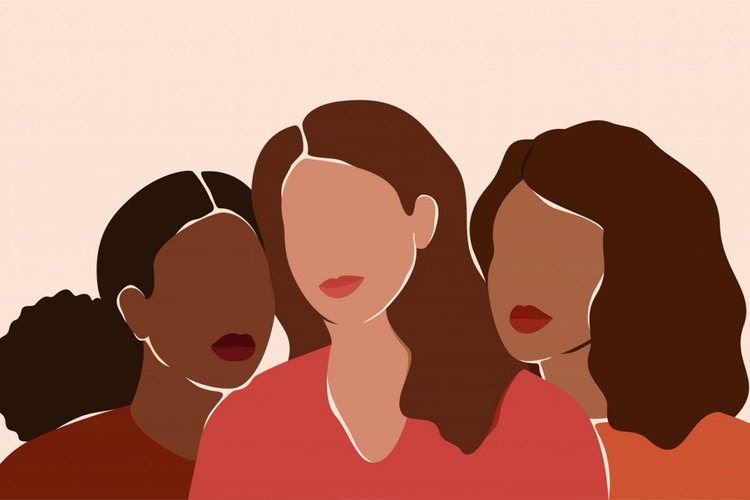Weekly wrap-up: Nepotism babies, rainbow T-shirts, class in the UK, Nike x Lebron James and more
- Kian Bakhtiari
- May 20, 2022
- 4 min read
The People's weekly wrap-up newsletter 20.05.22

Lebron James came up with the idea of selling two sharpies - black and blue - with every pair of AF1’s, so that people could create their own shoe. By writing their own message, the consumers can create their own stories, whether that’s an inspirational quote or a diagram. We think this is a great collab, because it gives young people the creative licence to express themselves without saying a word.
Find out more here

This week Blackpool’s Jake Daniels came out as the UK’s only openly gay active male professional footballer. The younger became first player in the UK to come out as gay since Justin Fashanu in 1990. And has been praised for his bravery and courage.
However, in the same week, there has been a story on the opposite path. It has been reported that PSG midfielder Idrissa Gueye has refused to play in a match to avoid wearing a rainbow symbol in support of LGBTQ+ rights. On Wednesday, the top hashtag on Twitter was #WeareallIdrissa with tweets sent to support Gueye's stance. The footballer has been supported by his team-mates and politicians in Senegal. The country's president Macky Sall wrote on Twitter that Gueye's Muslim beliefs must be respected. Meanwhile the French Football Federation (FFF) has called for him to issue an apology. Should Idrissa Gueye have to wear a rainbow shirt? Or is he entitled to his own personal choice not to wear the shirt?
Find out more here

Did a family member help you out to start your career in the industry? Then, you need to disclose that, because Gen-Zers are calling people who change the narrative on their origin stories to gain sympathy and money. In a new Tiktok trend called nepotism babies, Gen Zers are exposing famous celebrities for utilising their nepotism privilege. Although this viral trend is still young, nepotism is certainly nothing new.
One example is Billie Eilish claiming she made it by herself, however Tiktok communities called her out on her dishonesty and she isn’t the only artist exaggerating a glamorised rags-to-riches story as part of their personal brand. Why do working class fans get so upset about nepotism babies? Dr Nilu Ahmed, a chartered psychologist and Lecturer in Social Sciences at The University of Bristol, says it’s because it goes against a message we are told throughout our lives: that hard work is what gains us rewards. Young people have had enough of an unlevel playing field. They’re asking questions and exposing inequality. And #nepotismbabies is part of a growing movement.
Find out more here

Self Space offers flexible, on-demand therapy virtually and on the high street. Now the co-founders and therapists have released a new book “‘How To Grow Through What You Go Through”. Introducing the concept of “everyday mental maintenance”.
‘Everyday mental maintenance’ is defined as the self-care routine we do before we start feeling ‘rubbish’ – using low-key commitments like exercising and eating well – to maintain good mental wellbeing. Their book provides 4 inspiring ways to practice everyday maintenance. It includes checking in with yourself, making space for your emotions, being open with others and saying no to being busy. Start-up Self Space book is definitely making some noise and shaking up the discussion around mental wellbeing. From radical drop-in therapy sessions, brand collaborations, and now their ‘Mental-maintenance’ book. The question is what will they do next? We recommend checking out their practical steps to everyday mental maintenance in the article.
Find out more here

Britain is notorious for its class system and rigid distinction between the different strata of society. Historically, class has been determined at birth and then factors like socio-economic status, accent, education, cultural tastes and political inclinations. It used to be fairly easy to determine if an individual was working class, middle class or upper class.
However, today, in modern Britain, things are not so obvious. With an increasing number of social groups bleeding into one another – globalisation and current economic downturn – the idea of class has become more nebulous. Our heterogeneous and multi-cultural society gives people mish-mashed accents and tastes - and the possibility for better or worse - to shape themselves differently to where they have come from. A pensioner from a working-class background might be financially better off than a suburban young couple with master’s degrees paying rent in London. But does he still remain working class, and the latter middle class? Or is it defined by what publications they read and language they use? Is class still about money? Is it defined by society or personal identity? The lines are becoming increasingly blurred.
Find out more here



Comments